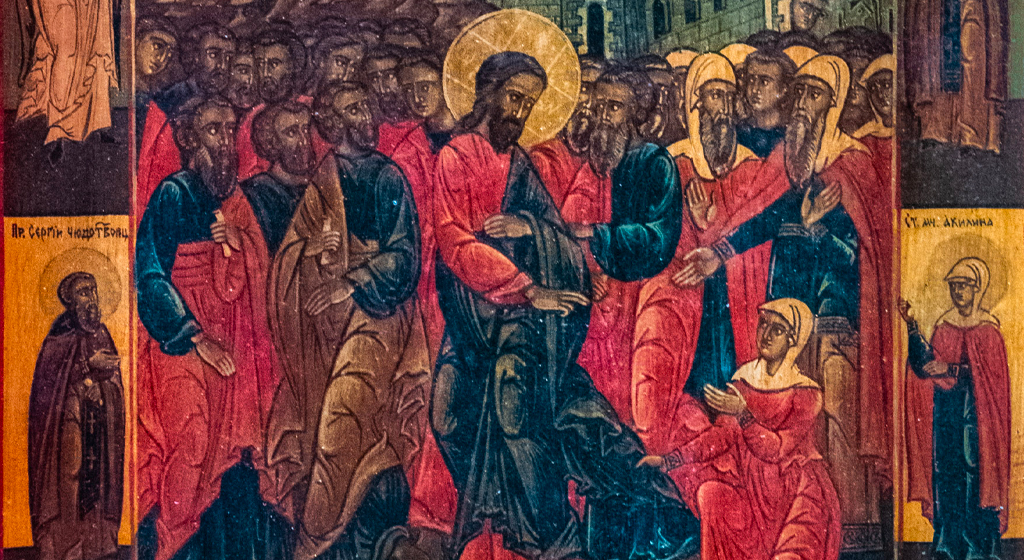Memory of the Poor
Reading of the Word of God
Praise to you, o Lord, King of eternal glory
This is the Gospel of the poor,
liberation for the imprisoned,
sight for the blind,
freedom for the oppressed.
Praise to you, o Lord, King of eternal glory
Daniel 3,25.34-43
Azariah stood in the heart of the fire, praying aloud thus: Do not abandon us for ever, for the sake of your name; do not repudiate your covenant, do not withdraw your favour from us, for the sake of Abraham, your friend, of Isaac, your servant, and of Israel, your holy one, to whom you promised to make their descendants as many as the stars of heaven and as the grains of sand on the seashore. Lord, we have become the least of all nations, we are put to shame today throughout the world, because of our sins. We now have no leader, no prophet, no prince, no burnt offering, no sacrifice, no oblation, no incense, no place where we can make offerings to you and win your favour. But may the contrite soul, the humbled spirit, be as acceptable to you as burnt offerings of rams and bullocks, as thousands of fat lambs: such let our sacrifice be to you today, and may it please you that we follow you whole-heartedly, since those who trust in you will not be shamed. And now we put our whole heart into following you, into fearing you and seeking your face once more. Do not abandon us to shame but treat us in accordance with your gentleness, in accordance with the greatness of your mercy. Rescue us in accordance with your wonderful deeds and win fresh glory for your name, O Lord.
Praise to you, o Lord, King of eternal glory
The Son of Man came to serve,
whoever wants to be great
should become servant of all.
Praise to you, o Lord, King of eternal glory
The passage we heard reports the prayer of Azariah while he was "in the midst of the fire" (v. 25) and asked the Lord to intervene for his mercy. He recognizes the tragic consequences of the abandonment of God by Israel: "Now we have become smaller than any other nation, are humiliated for all the earth because of our sins. Now there is no prince, or leader, or prophet, or holocaust, or sacrifice, or oblation, or incense, no place to offer first fruits" (v.38). We could say that this is what happens to believers when they abandon God, when prophecy ceases, when visions stop, when one becomes worldly, when one follows the logic of profit, of individual interest. It really happens that each follows only him or herself and all solidarity crumbles. But just at this tragic moment in the history of the people here is the prayer of a righteous man, the prayer of the small rest that prays for everyone, for all the people. In that prayer self-centeredness, even the religious kind, is defeated. Azariah prays not for himself but for the people. It is the meaning of the prayer for peace, for healing, for the salvation of all. And the believer knows that he does not pray emptily, that his words are not lost in the empty heaven. His words are heard by a God who is faithful. Azariah knows he is listened to, he trusts not so much in his words but in the faithfulness of God: "Do not abandon us to the end, Lord, for your name's sake, do not break your covenant; do not withdraw your mercy" (v.34). It is a prayer born of fire. It is the fire of love that burns in the heart of Azariah, who dares to send his prayer to heaven as a burnt offering: "This is our sacrifice today before you; let it be pleasing to you" ?? (v. 40). Azariah is set before us as an example of the believer who does not cease to invoke the Lord for his brothers, sisters, the whole people of God and for all people.
